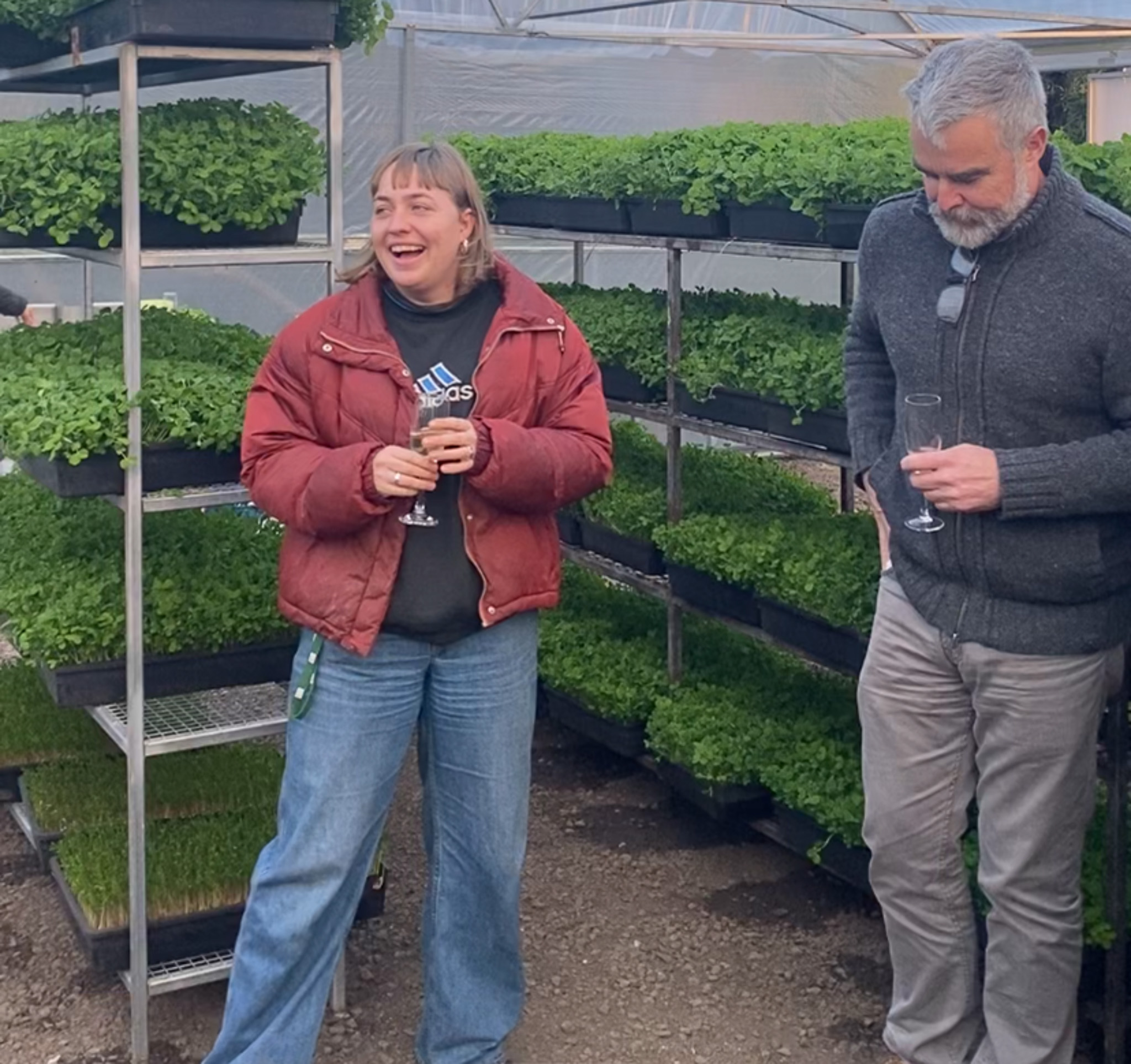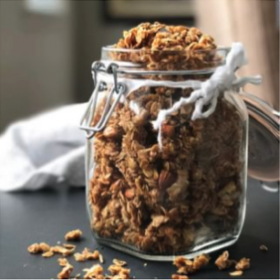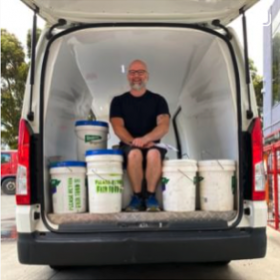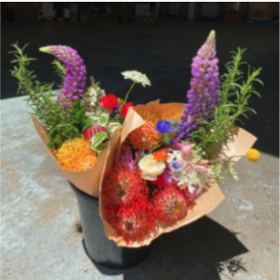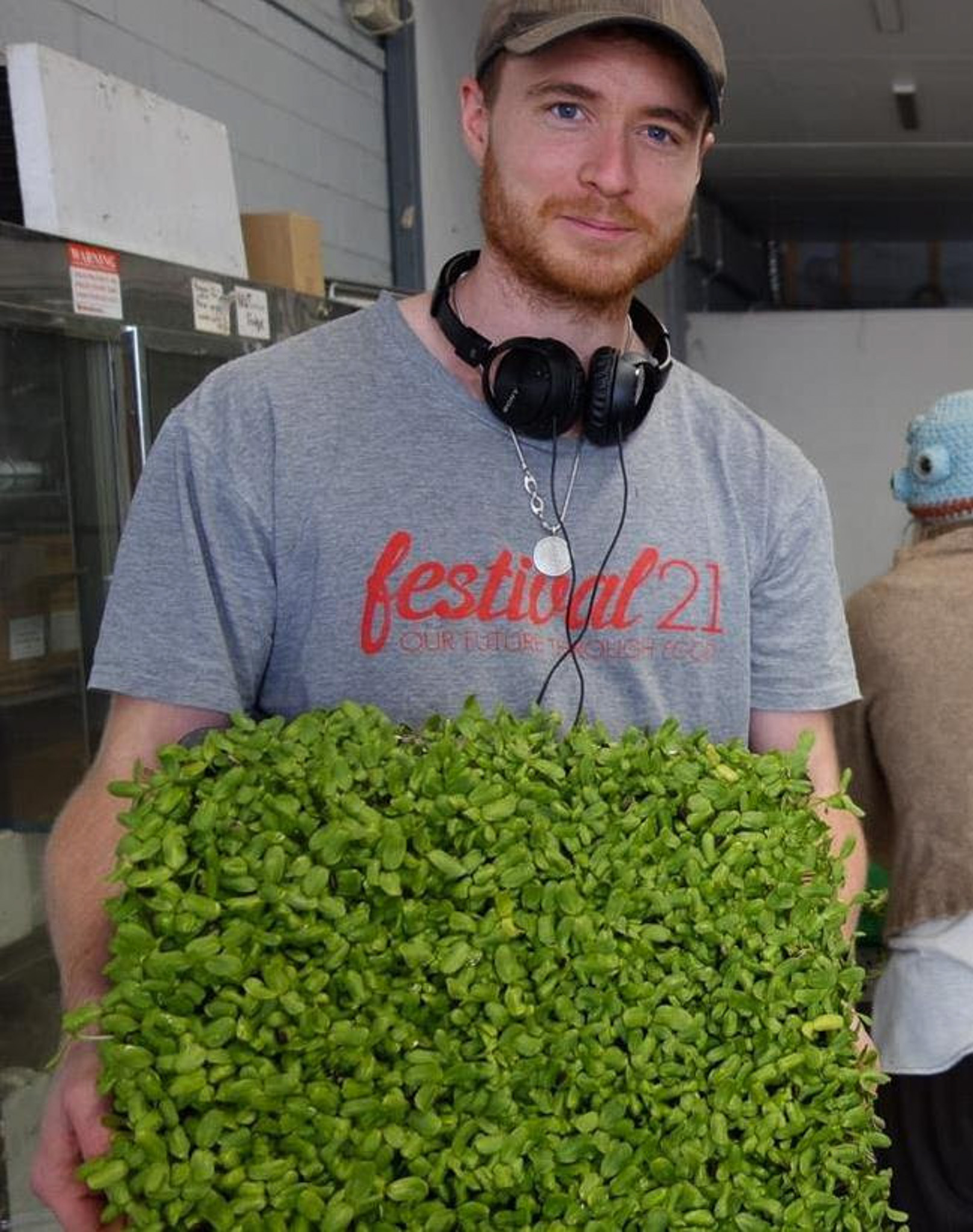
The rhyme and the rhythm
A week ago inside a large greenhouse warmed by the afternoon sun, a group gathered and raised their glasses to open the new CERES Microgreens Farm.
It was the culmination of a journey that started in 2014 with the arrival of Dan O’Farrell to CERES Fair Food as a professional writing intern (that’s Dan in the pic above).
Dan’s tasks were writing such things as FAQ’s and webpage Terms and Conditions, but after a couple of uninspiring weeks Dan enquired if there was any sort of farming he could do?
I asked Dan if he’d be interested in growing microgreen sprouts?
It was a throwaway question, CERES had the barest of resources; an old shipping container, a bit of space in the corner of a poly tunnel and no knowledge about microgreen growing whatsoever.
I assumed Dan would go back to his writing, but to my surprise he confessed a lifelong dream of becoming a sprout farmer.
And so the next week Dan turned up at the old shipping container in the Fair Food car park and started his career as a microgreens farmer.
Information about sprouting microgreens was sparse, but Dan’s research skills helped him find the little that was out there.
He needed the right seeds and soil mix, he had to work out the density to plant, the amount of dark and light to sprout, the right watering, hardening off, the best way to harvest, sustainable bags to pack into…. on and on it went.
Despite Dan’s enthusiasm, expectations weren’t high; it was challenging work – repetitive, cold, wet, with unsociable hours, poor pay and things that were forever going wrong.
When he was finally ready to sell his first crop the certifying body refused to recognise his sprouts as organic. Determined, Dan studied the organic standards, found an error and had the decision reversed.
At the time Microgreens were mostly grown as a fine dining garnish, but instead of chasing hatted chefs Dan’s chose bulky fast growing peas and sunflower sprouts which made perfect salad greens anyone could use.
Sweet, crisp, packed with nutrients and a shelf life twice as long as mesclun mix Dan’s first microgreens became instantly popular with Fair Food customers.
In a car park, on less than 100 square metres Dan found he could produce as many salad greens as a traditional market garden many, many times larger with no fertiliser and a fraction of the water.
After eighteen months he was supplying CERES, a dozen organic shops and the Melbourne Wholesale Markets, the rhyme of Dan’s life had clicked into the rhythm of sprouting peas and sunflowers and he was away.
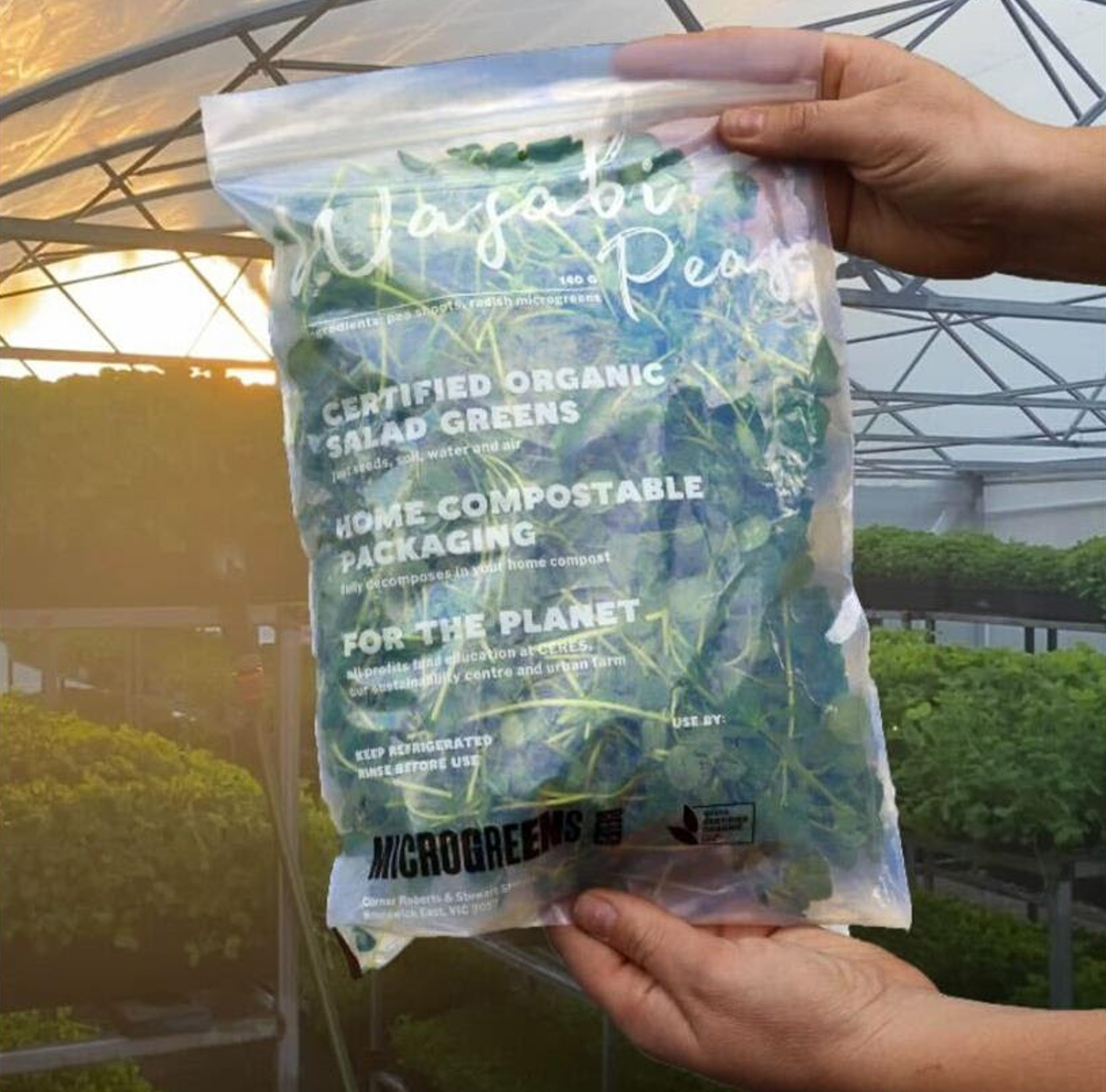
Dan moved onto documenting and sharing what he had learnt – he secured funding to write teaching materials and run workshops.
He took on employees including farmer Jess Holland. With a background in native plant propagation Jess took over production while Dan worked on design and training.
Dan had been planning a larger much more efficient microgreens farm that used less water, less soil and wasn’t as labour intensive as his original model.
The new farm was briefly embraced as the green centrepiece of a human-friendly housing development in the Docklands before COVID came and it was quietly shelved.
Then at CERES, usually the hardest of places to find space, the rearrangement of a timber recycling yard created just enough room to squeeze in Dan’s new farm.
Three years later, through lockdowns, grant applications, planning permits and a hundred design and construction meetings Dan’s vision was finally launched.
You can tour the new farm and learn how to grow microgreens yourself at CERES’ next Intro to Growing Microgreens workshop with farmer Jess.
And you can find Dan and Jess’ Microgreens in the Fair Food webshop and all good salad green outlets.
Have a great week
Chris
